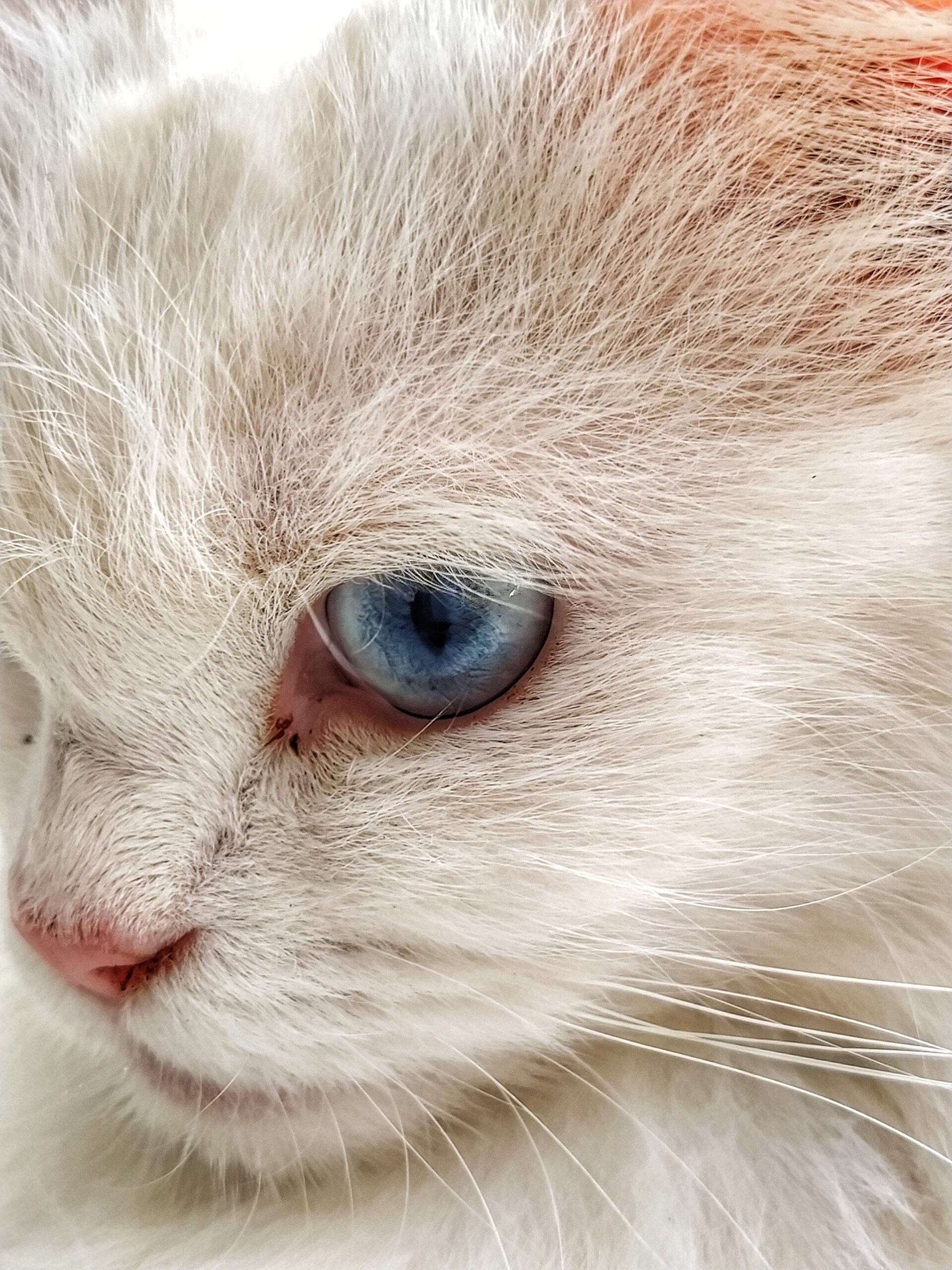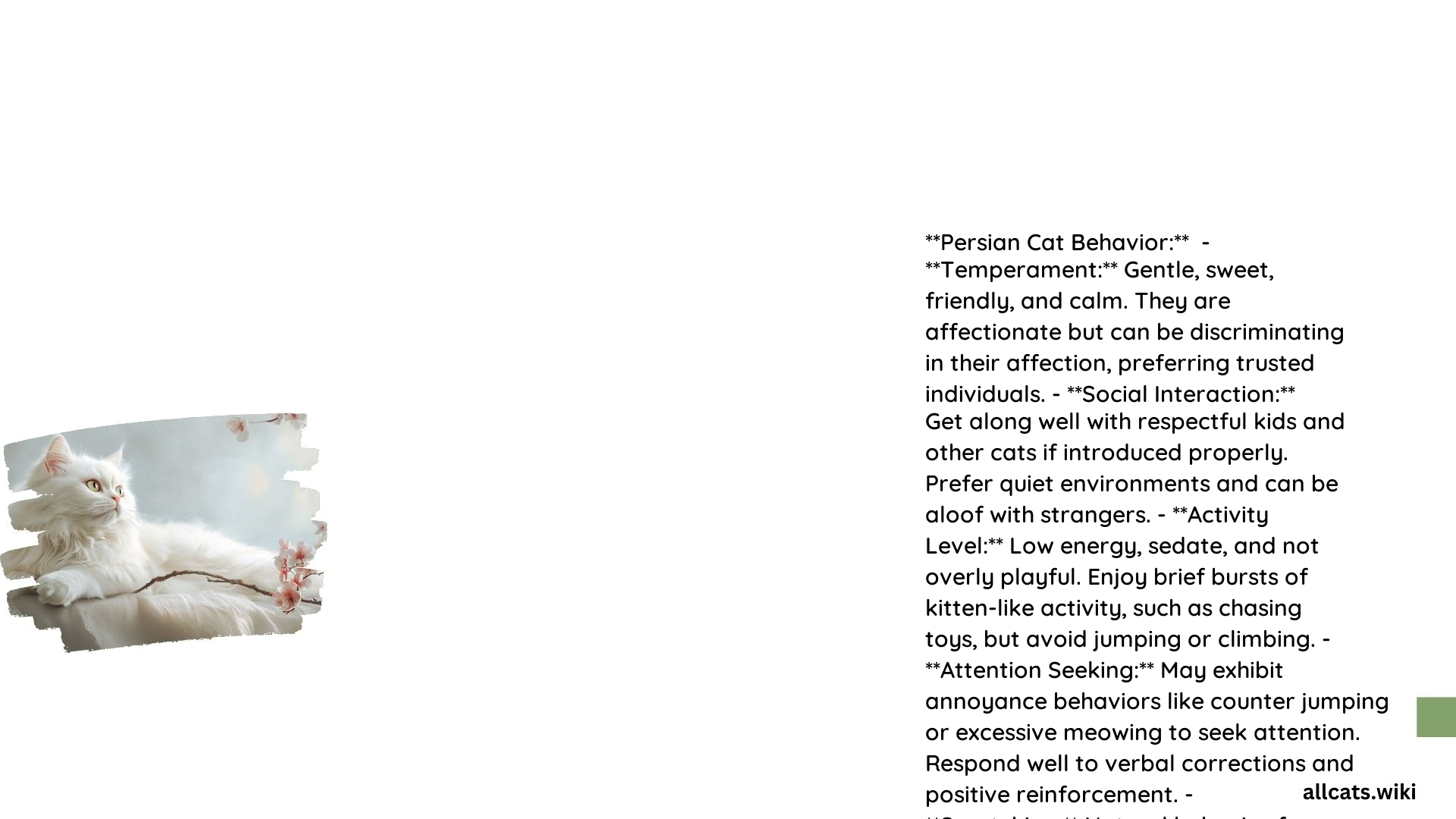Persian cats are known for their distinctive appearance, with their fluffy coats and flat faces, but their behavior can also be quite unique. From running away from their owners to excessive nighttime meowing, Persian cats can exhibit a range of behaviors that may require understanding and attention. In this comprehensive blog post, we’ll explore the common behavioral traits of Persian cats and provide practical solutions to address them.
Why Does My Persian Cat Run Away from Me When I Approach?

One of the most common behavioral issues with Persian cats is their tendency to run away when their owners approach. This behavior can be frustrating for pet owners, but it’s important to understand the potential root causes and how to address them.
Potential Root Causes
- Fear and Past Experiences: Persian cats can be sensitive and may develop fear-based behaviors if they have had negative experiences, such as rough handling or loud noises.
- Socialization Issues: If your Persian cat was not properly socialized as a kitten, it may be more cautious around people.
- Environmental Factors: Changes in the home environment, such as new pets or people, can also cause your cat to become more skittish.
Behavioral Modification Techniques
- Gradual Desensitization:
- Visual Contact: Start by allowing your cat to see you from a distance without feeling threatened. Reward your cat with treats for remaining calm.
- Proximity: Gradually increase your proximity to your cat while continuing to offer treats. If your cat shows signs of fear, retreat to the previous step.
- Touch: Once your cat is comfortable with your presence, introduce gentle touch. Begin with light petting and gradually increase the duration and intensity.
- Positive Reinforcement:
- Use positive reinforcement techniques such as offering treats and praise when your cat exhibits calm behavior around you.
- Create a safe space for your cat where it can retreat if feeling overwhelmed, ensuring it always has a place to feel secure.
How Can I Correct My Persian Cat’s Behavior of Jumping on the Counter?

Persian cats are known for their curious nature, and this can sometimes lead to undesirable behaviors, such as jumping on the kitchen counter. Addressing this issue requires a combination of effective training strategies and environmental modifications.
Effective Training Strategies
- Deterrents:
- Double-Sided Tape: Place double-sided tape on the counter to discourage your cat from jumping up. Cats dislike the sticky sensation.
- Motion-Activated Devices: Use motion-sensor devices that emit a harmless but startling noise when your cat jumps on the counter.
- Alternative Behavior Reinforcement:
- Provide alternative surfaces for your cat to jump on, such as cat trees or scratching posts. Reward your cat with treats for using these surfaces instead of the counter.
Environmental Modifications
- Remove temptation by keeping counters clear of food and other attractive items.
- Ensure your cat has enough vertical space and scratching areas to satisfy its natural climbing and scratching instincts.
Step-by-Step Training Schedule
- Day 1-3: Place double-sided tape on the counter and introduce alternative surfaces like cat trees.
- Day 4-7: Start using motion-activated devices if necessary.
- Day 8-14: Continue to reinforce desired behavior by rewarding your cat for using the alternative surfaces.
- After 2 Weeks: Gradually remove deterrents if your cat consistently avoids the counter, but be prepared to reintroduce them if the behavior returns.
Why Does My Persian Cat Meow Excessively at Night?
Nighttime meowing can be a common issue for Persian cat owners, and it’s important to understand the potential reasons behind this behavior to find effective solutions.
Possible Reasons
- Loneliness or Boredom: Persian cats need mental and physical stimulation. If they are not getting enough activity during the day, they may meow at night due to boredom or loneliness.
- Health Issues: Pain or discomfort from health issues can cause excessive meowing. Ensure your cat is healthy by regular veterinary check-ups.
- Attention Seeking: Cats may meow at night if they are seeking attention.
Practical Solutions
- Enriching the Environment:
- Provide interactive toys and puzzle feeders to keep your cat engaged during the day, reducing the likelihood of nighttime meowing due to boredom.
- Create a stimulating environment with scratching posts, climbing structures, and window perches.
- Establishing a Nighttime Routine:
- Develop a consistent bedtime routine that includes playtime, feeding, and relaxation. This can help signal to your cat that it is time to sleep.
- Avoid interacting with your cat immediately before bedtime to prevent stimulating it.
- Reducing Nighttime Vocalization:
- Ignore the meowing if it is attention-seeking. If the meowing persists, check for any health issues and ensure your cat’s basic needs are met.
- Consider using calming aids like pheromone diffusers or calming treats if your cat is experiencing anxiety.
Potential Costs
- Interactive Toys and Puzzle Feeders: These can range from $5 to $50 depending on the complexity and brand.
- Calming Aids: Pheromone diffusers and calming treats can cost between $10 to $50.
Reference Links
- The Spruce Pets: Persian Cat: Breed Profile, Characteristics & Care
- Petplan: Persian: Personality, Diet, Grooming, Training
- Countryside Veterinary Clinic: Learn About The Persian Cat Breed From A Trusted Veterinarian
